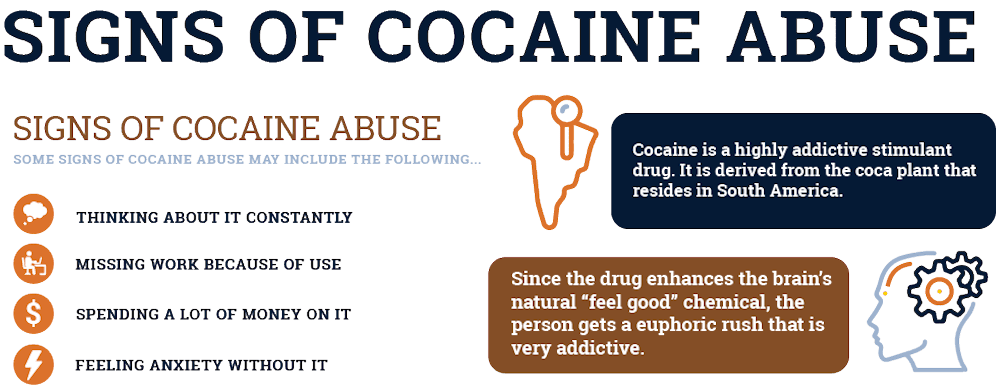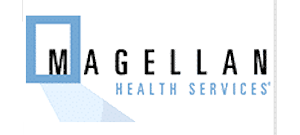Illinois joins together industry and culture in a diverse setting. Home of Chicago, one of the most populated cities in the United States, Northern Illinois is a hub of traffic and excitement. However, along with the positive aspects of the area, there also is a high amount of drug usage.
Whether it’s heroin, meth, cocaine, or benzos, the Northern Illinois area has its struggles with drug addiction. According to the National Institute on Drug Abuse, cocaine is one of the most widely abused drugs in the Chicago area of Northern Illinois. Luckily, help is available due to the presence of various treatment centers for drug addiction. Finding the right substance abuse treatment programs is the first step in healing, and Northern Illinois Recovery Center can help.
When it comes to appearance, cocaine is a white, powdery substance that looks similar to baby powder or very white flour. In fact, this drug often is mixed with powders such as flour, baby powder, baking soda, or cornstarch to increase dealers’ profits. Luckily, these substances are not psychoactive. However, there is a risk of cocaine being mixed with other drugs. Therefore, someone purchasing what they believe is pure cocaine may also be buying a drug mixed with amphetamines or local anesthetics such as procaine.


How Do People Use Cocaine?
While intranasal use is the most common method of cocaine use, there are other ways that this drug is abused. Some users will take cocaine orally by rubbing it on their gums. Similar to intranasal use, the drug is then able to enter the bloodstream through the gum tissue. Further, one of the most concerning uses of cocaine is injection. Some users will mix cocaine with water and inject it intravenously (into a vein) to feel the more heightened effects of cocaine.
Finally, some users smoke cocaine. This is another highly concerning method of administering this drug, as smoking cocaine can produce the same heightened effects that injection causes. Additionally, cocaine that has been changed into crack cocaine is often smoked. These methods are dangerous and can easily lead to the absorption of toxic amounts of cocaine.
The Addictive Nature of Cocaine
The rewards pathway of the brain deals with dopamine production. Different stimuli such as food or drugs stimulate this pathway, which reinforces the abuse of substances. Unfortunately, this pathway also deals with motivation and emotional regulation. This is why people who engage in cocaine use are unable to easily stop using once they have developed cocaine use disorders.
Additionally, since cocaine is a stimulant, it also gives a person more energy, causing them to feel like they can accomplish many things. This may reinforce the idea that abusing cocaine is not a serious problem in an individual and lead to more cocaine abuse. However, cocaine abuse is very serious as it can lead to an addiction or substance use disorder, serious health consequences, or significant changes to the brain.

The Signs and Symptoms of Cocaine Abuse
- Thinking about doing cocaine all the time
- Feeling anxious if you think about quitting
- Missing work or social events because of drug use
- Experiencing cocaine cravings when not using the drug
- Going through a lot of money to abuse cocaine regularly
- Borrowing money to engage in substance abuse of cocaine

These signs of cocaine addiction often serve as a sign that you or a loved one should attend cocaine addiction treatment in Northern Illinois. A helpful first step after noticing these signs is taking an ‘am I an addict quiz‘ to better understand the situation and consider appropriate treatment options.
Short and Long-Term Effects of Cocaine Abuse
Short-Term Effects of Cocaine Abuse
The aforementioned effects of cocaine use are not the only effects, though. Many negative short-term effects result from using cocaine. Once cocaine enters the body, the following side effects can occur immediately:
- Vertigo
- Anxiety
- Irritability
- Tremors
- Paranoia
- Restlessness
- Dilated pupils
- Violent feelings
- Muscle twitches
- Increased heart rate
- Increased blood pressure
- Constricted blood vessels
- Increased body temperature
- Sensitivity to light, sound, or touch
- Potentially bizarre or erratic behavior
Some of these effects can lead to serious and immediate health complications. Serious consequences such as seizures, heart attacks, and strokes can occur due to frequent use resulting from cocaine addiction. Additionally, there are concerns regarding drug abuse and alcohol consumption as cocaine mixed with alcohol can produce toxic effects on the human heart. These effects are why rehab for cocaine addiction is important to seek if you are unable to stop using this drug.


Long-Term Effects of Cocaine Abuse
If you have a cocaine addiction, it’s likely that you have been using the drug for some time. This is highly concerning as sustained cocaine use can cause a number of different physiological effects. Over time, chronic cocaine abuse can cause the following long-term side effects in a person with a cocaine-based substance abuse disorder:
- Increased irritability, paranoia, and panic attacks
- Worsening of an existing mental illness due to cocaine use
- Cocaine withdrawal symptoms such as displeasure or irritability when the drug isn’t taken
- An increase in tolerance resulting in the need to use larger quantities of cocaine to feel the same effects
- Sensitization to cocaine
- The development of psychosis and related symptoms such as hallucinations and a loss of touch with reality
As time goes on, these adverse effects generally become worse. Usually, this is because individuals begin to take more of the drug to try and diminish the negative effects they are feeling. Unfortunately, this only makes the effects worse and increases the chances of death due to toxic amounts of cocaine in the body. However, there is a way to break the cycle of drug abuse through treatment for cocaine abuse.
Insurance Verification




Treatments Offered by Cocaine Addiction Rehabs
Cocaine Addiction Treatment Options
- Residential Treatment: Residential treatment in Illinois, also known as inpatient treatment programs, provide 24 hour care and supervision for people suffering from a cocaine addiction. This is usually the first treatment program that patients attend before moving to a less intensive level of care.
- Partial Hospitalization Programs: Also known as PHPs, this type of substance abuse treatment program benefits patients who need a higher level of care than traditional outpatient yet cannot commit to residential rehab programs.
- Intensive Outpatient Treatment: Also referred to as an IOP, this type of program offered at addiction treatment centers provides a level of care in between a PHP and traditional outpatient.
- Outpatient Treatment: Outpatient treatment at a drug rehab allows patients to receive care during the day and return home after. This is a great form of addiction treatment for patients who need a flexible program.
These cocaine addiction treatment options provide a safe and sober environment for patients who are committed to overcoming cocaine addiction. The best treatment options for you will be recommended when you speak with a treatment provider. How long you’ve been abusing cocaine, how much of the drug you take, and any co-occurring mental health conditions will be taken into account to determine which program would benefit you the most.


What to Expect at a Cocaine Addiction Rehab
Cocaine Addiction Therapies
- Cognitive-Behavioral Therapy (CBT): CBT is a type of therapy that seeks to change negative thought patterns and patterns of behavior while instilling positive coping skills in patients with a cocaine addiction.
- Individual therapy: In individual therapy sessions, a therapist assists patients with understanding their emotions. Through one on one sessions, patients learn how to respond better to situations that drive them to take drugs.
- Group therapy: Group therapy sessions conducted by a cocaine treatment center, provide support for patients who feel alone in their addiction. These therapy sessions help patients ease their sense of shame or isolation by discussing their addictions together.
- Family therapy: During family therapy sessions, the family of a patient is able to learn more about addiction and what causes it. Family therapy can also help the patient understand how their addiction affects their loved ones.
All of these therapies are addiction treatment services available to clients across all our programs. Additionally, addiction is a condition that must be managed for life. Attending aftercare programs that provide support groups, sober living arrangements, and continued therapy can aid with the longevity of your sobriety and stability.
Where to Find a Cocaine Addiction Rehab in Northern IL
Some of the addiction treatment programs you will find at our cocaine addiction rehab center include:
- Detox Programs
- Aftercare Programs
- Recovery Coaching
- Sober Living Programs
- Dual Diagnosis Treatment
- Medication-Assisted Treatment (MAT)
Don’t let cocaine rule your life. Addiction treatment centers can help you overcome this debilitating and potentially life-threatening addiction. If you are ready to seek treatment, contact us today at Northern Illinois Recovery Center. We’ll help you take that first step on the pathway to healing.






